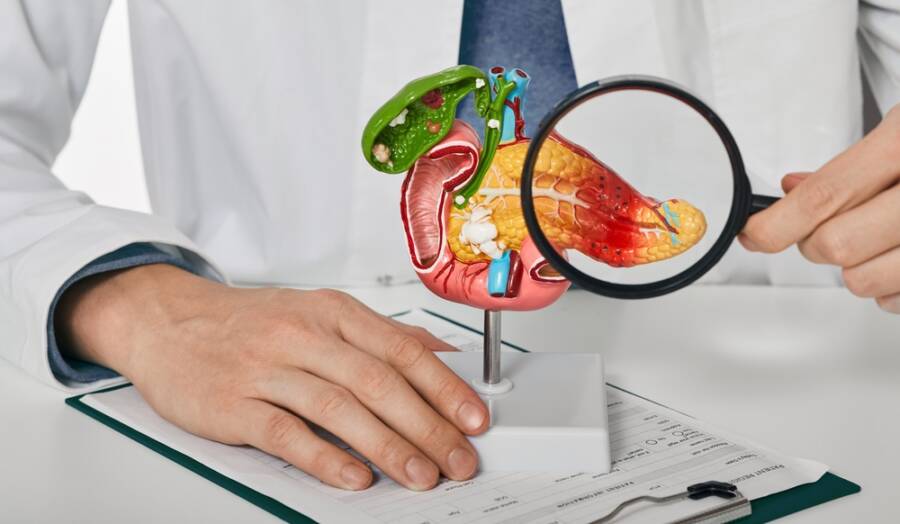Heart disease is the leading cause of death in our country, affecting tens of millions of Americans every year.
In fact, The Heart Foundation reports that ‘cardiovascular diseases claim more lives than all types of cancer combined,’ yet many of us are still not paying attention to their heart health.
The ugly truth is that no matter how good we’re feeling, our body may be secretly struggling with a hidden condition.
Sadly, many heart illnesses show almost no symptoms until it’s too late and you already need treatments.
Knowing the signs is crucial to stay healthy and keep yourself protected from the dangers of heart disease which could be fatal if left untreated.
With that in mind, we’re going to see 10 of the strangest heart disease signs your doctor wants to know about immediately!

Pain in the shoulder
We already know that chest pain is a symptom of heart attack or another serious heart problem. However, if your left shoulder is aching, this may also be a sign that your heart needs help!
As the heart muscle begins to be affected by a condition, the pain can be so intense that it irradiates towards the left shoulder. The medical term for this symptom is ‘angina,’ which means that your heart isn’t receiving (or sending) blood properly.
Feeling a sharp shoulder pain? It’s most likely not related to the heart (especially if you’ve been lifting weights or working out). However, if the pain doesn’t go away and gets worse in time, you should definitely let your doctor know.
Poor sleep
Can’t fall asleep? Struggling to get some actual rest for once?
It might be stress, it might be that nighttime snack – or it might be a hidden heart problem.
Although many people don’t think they should discuss their sleep quality with their doctor, it might offer some key clues that something’s wrong.
Sleep apnea, for instance, can be an indicator of poor blood circulation in the heart muscle. According to AHA (the American Heart Association), sleep apnea is often associated with ‘high blood pressure, arrhythmia, stroke and heart failure.’
Sleep problems are even more important if you’re overweight or obese. These are two of the most prevalent risk factors for heart disease and they can lead to obstructive sleep apnea (OSA).
OSA is a serious condition which restricts the airflow towards the lungs during sleep, therefore reducing the oxygen levels in your blood.
Always mention any sleep problems to your doctor just to rule out a dangerous diagnosis.
Sore gums (dental problems)
This is probably the most surprising symptom of heart disease – and one you should definitely mention to your doctor.
Dr. Thomas Boyden explains that the gums are full of blood vessels – and your mouth is full of bacteria. If you disrupt the protective gum layer, you’re going to get bacteria in your bloodstream.
Depending on which type of bacteria penetrate the bloodstream, you may start developing conditions that affect your heart health.
ATTENTION! If you start experiencing pain that starts from the heart muscle and goes up towards the jaw, seek medical assistance immediately. This may be a symptom of heart attack and you might require emergency help.

Puffy feet
If you’ve recently started working out, having sore legs may be a good sign that your body is getting used to physical activity.
However, if you notice that your feet and legs are getting puffier by the day without any obvious reason, it’s time to call your doctor.
Swollen ankles or feet can be a sign that your heart isn’t pumping blood properly, so it’s not reaching the extremities as it normally would.
The medical term for this condition is heart failure – and although it’s not as urgent as a heart attack or cardiac arrest, you should definitely get a checkup.
Shortness of breath
Once again, we’re not talking about the shortness of breath you’re getting post-workout or after doing house chores.
The American Heart Association says that the following situations might be a sign of heart disease:
- You’re feeling breathless while resting or sitting down
- You experience breathlessness during sleep, which can make you wake up gasping for air
- You’re tired for no apparent reason
All of these signs can be your body’s way of screaming for help. They could mean that your heart doesn’t receive (or send) blood properly, so you should always mention them to your doctor.
Long-term cough
Coughing is probably the scariest symptom right now, due to the COVID-19 pandemic and all the other illnesses that arrived after that (remember Flurona?). However, there are many other conditions that can cause persistent cough including chronic bronchitis and – as you may have guessed – heart disease.
A cough that doesn’t go away regardless of what you try can mean there’s fluid stuck inside your lungs, which is a symptom of congestive heart failure.
Congestive heart failure happens when your heart is no longer able to pump blood efficiently towards major organs. This can lead to excessive pressure in the small blood veins located inside your lungs, which in turn makes fluid build up inside the lungs.
This condition can also give you shortness of breath, so if you have both symptoms, it’s definitely time to call your doctor.
Cold sweats
Sudden cold sweats can signal many problems, from night terrors to menopause.
Generally, sweating is very healthy because it allows your body to eliminate toxins and cool itself down when necessary.
However, sudden bouts of cold sweats that randomly appear throughout the day can signal a heart problem; this reaction may occur when your body is trying to cool down as it fights off heart inflammation.
If you notice any sort of chest pain, shortness of breath and/or shoulder pain, contact your doctor as soon as possible.

Irregular heartbeat
Medically called arrhythmia, irregular heartbeat can occur due to a wide range of factors, from panic attacks to heart failure or an upcoming heart attack.
Generally, an irregular heartbeat happens when your heart isn’t pumping blood the way it should.
According to the Heart Rhythm Society, ‘high blood pressure and coronary artery disease are the main causes of blood vessel disorders.
Another common cause of arrhythmia is an alteration of the electrical system which naturally controls your heartbeat. The most common types of arrhythmia are:
- Premature ventricular contractions or skipped heartbeats may be caused by many heart diseases and require further investigation;
- Atrial fibrillation means that your heartbeat is much faster than usually; the heart is able to pump up to four times faster than the normal heartbeat, which can increase your risk of stroke significantly;
- Atrial flutter also causes a fast heartbeat, but it’s more organized than atrial fibrillation; this condition also increases your risk of stroke.

The most prevalent health problems
Each type of heart disease comes with its unique range of symptoms. However, knowing the general signs of a heart problem can help you ask for a specialist’s help before it’s too late.
As I always like to say, prevention is always easier than treatment!
Some conditions are far more common than others, though. Here are the four most prevalent heart illnesses in our country:
- Heart failure, which occurs when your heart can no longer pump blood towards the rest of the body properly; don’t let the name fool you! Heart failure can be a long-term illness with silent symptoms and it’s also manageable with proper treatment.
- Heart attack, meaning that your heart stops receiving blood (and therefore oxygen). Depending on how much blood gets to the heart, parts of the muscle will die.
- Coronary heart disease, which happens when there’s a plaque buildup in the heart’s coronary arteries. This condition causes the biggest number of fatalities.
- Stroke, which interrupts the blood flow from the heart towards the brain either partially or completely.
Preventing heart disease
Even though heart disease isn’t 100% preventable, our lifestyle has a major influence on how prone we are to developing a heart condition in the long run.
The most helpful things you can do to reduce your risk of a heart illness are:
- Doing at least 30 minutes of physical activity daily (as per the American Heart Association)
- Quitting smoking (which is also the leading cause of lung cancer and cancer fatalities)
- Eating a plant-based diet cooked in healthy ways (such as boiling, roasting or baking)
- Getting an annual checkup especially if you’re over 50
Additionally, make sure to contact your doctor any time you experience unusual symptoms. When it comes to your health, it’s better to be safe than sorry!
Other useful resources
It’s never too late to make a positive difference in your life and improve your heart health. Luckily, now we have all the tools we need to expand our lifespan and protect our loved ones as well!
With that in mind, I’ll leave one of our top resources that can help you improve your heart health with minimal effort: 10 Healthy Beverages You Should Drink Everyday













